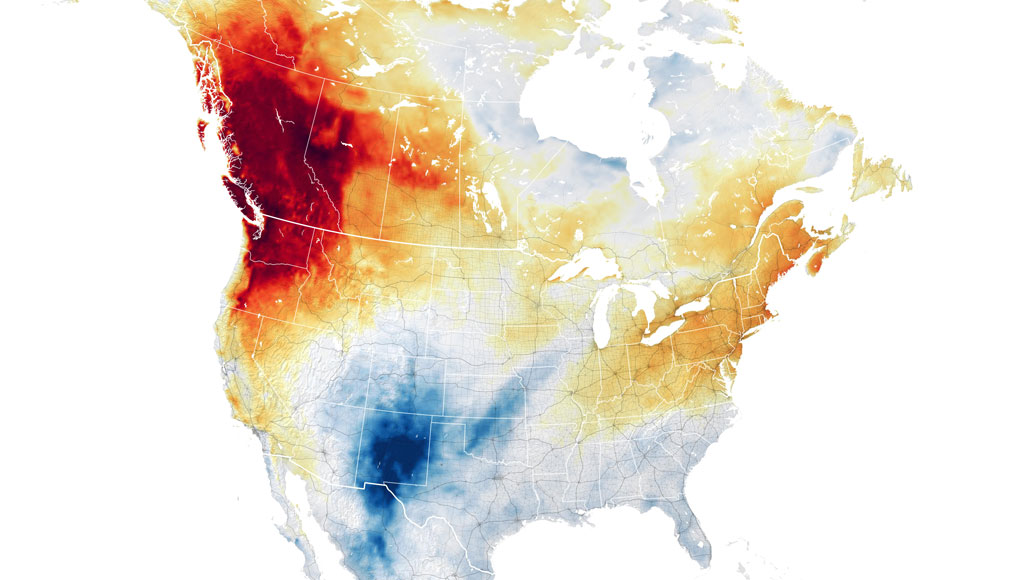You are here
Scientists: Human-driven climate change sent Pacific Northwest temperatures soaring
Primary tabs
 Human-driven climate change sent Pacific Northwest temperatures soaring As scientists dissect what pushed temperatures up to 5 degrees Celsius above previous records, they may have to revamp how to predict heat waves. Science News
Human-driven climate change sent Pacific Northwest temperatures soaring As scientists dissect what pushed temperatures up to 5 degrees Celsius above previous records, they may have to revamp how to predict heat waves. Science News The deadly heat wave that baked the Pacific Northwest in late June would have been “virtually impossible” without human-caused climate change, an international team of scientists announced July 7.
In fact, the temperatures were so extreme — Portland, Ore., reached a staggering 47° Celsius (116° Fahrenheit) on June 29, while Seattle surged to 42° C (108° F) — that initial analyses suggested they were impossible even with climate change, Geert Jan van Oldenborgh, a climate scientist with the Royal Netherlands Meteorological Institute in De Bilt, said at a news conference to announce the team’s findings. “This was an extraordinary event. I don’t know what English word covers it.”
Climate change due to greenhouse gas emissions made the region’s heat wave at least 150 times more likely to occur, the team found. As emissions and global temperatures continue to rise, such extreme heat events could happen in the region as often as every five to 10 years by the end of the century.
It’s not just that numerous temperature records were broken, van Oldenborgh said. It’s that the observed temperatures were so far outside of historical records, breaking those records by as much as 5 degrees C in many places — and a full month before usual peak temperatures for the region. The observations were also several degrees higher than the upper temperature limits predicted by most climate simulations for the heat waves, even taking global warming into account.
... (map)
Coming just about a week after the heat wave broke, the new study is the latest real-time climate attribution effort by scientists affiliated with the World Weather Attribution network. Van Oldenborgh and University of Oxford climate scientist Friederike Otto founded the group in 2014 to conduct quick analyses of extreme events such as the 2020 Siberian heat wave (SN: 7/15/20).
In the current study, 27 researchers focused on how the observed temperatures from June 27 to June 29 compared with annual maximum temperatures over the last 50 years for locations across the northwestern United States and southwestern Canada. The team then used 21 different climate simulations of temperatures to analyze the intensity of such a heat wave in the region with and without the influence of greenhouse gas warming. ...



Recent Comments